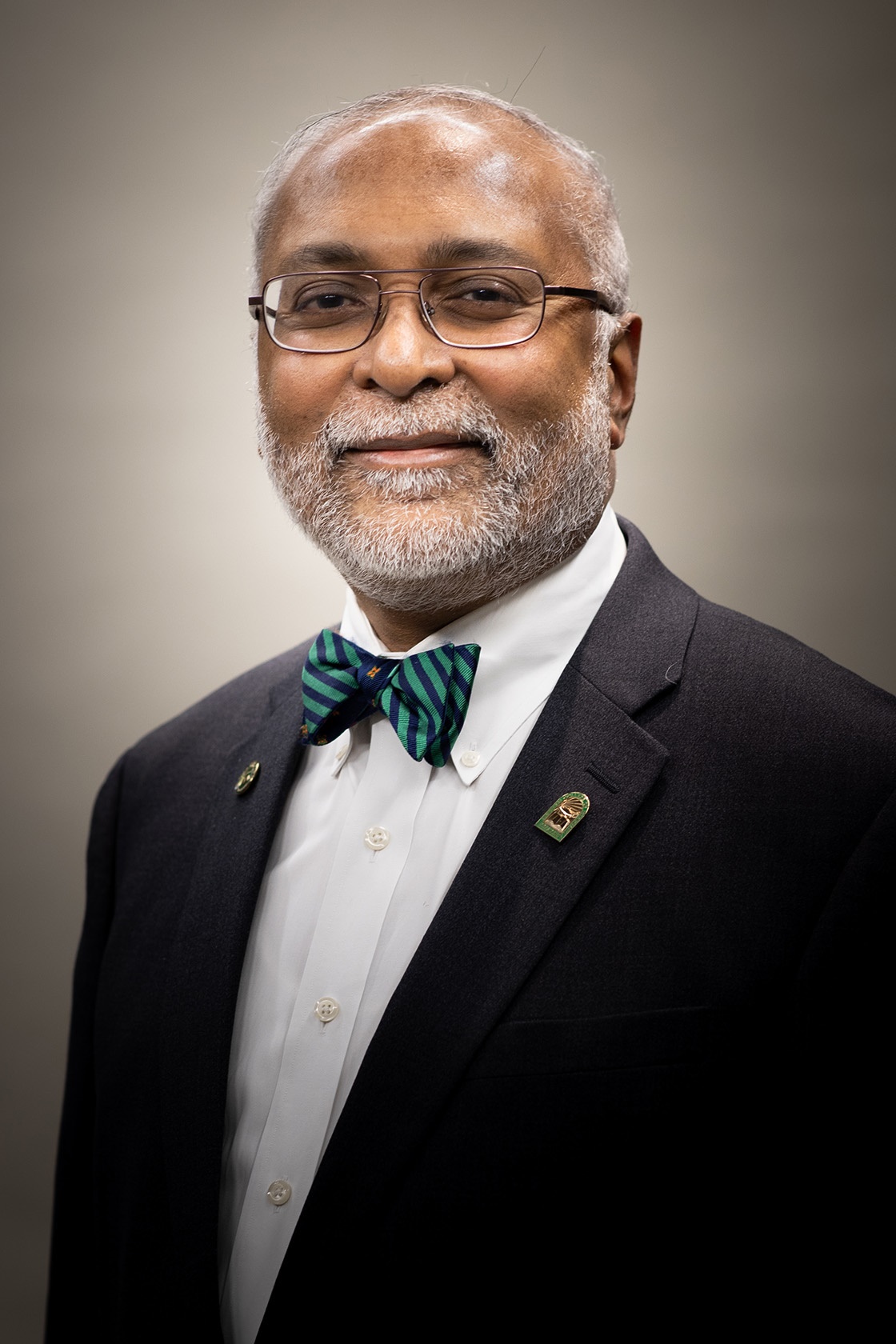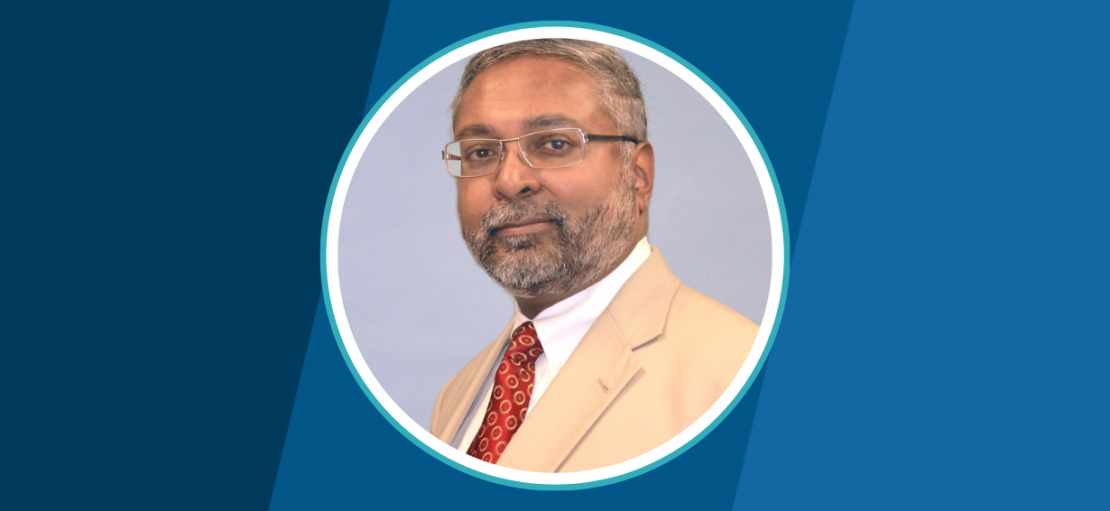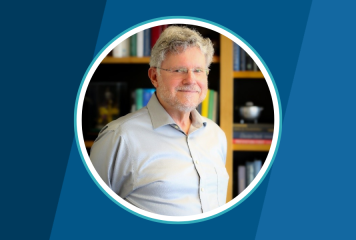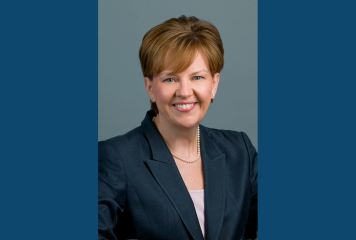
George M. Abraham, MD, MPH, is a Professor of Medicine at the University of Massachusetts Medical School, and Chief of Medicine and Director, Division of Infectious Diseases and Geographic Medicine, at Saint Vincent Hospital in Worcester, Massachusetts. He is currently the Chair-Elect of the Board of Directors of the Federation of State Medical Boards (FSMB). He previously served as Chair of the ABIM Infectious Disease Board (2018–2021), Chair of the Board of Registration (Licensing) in Medicine and President of the American College of Physicians (ACP) (2021–2022). Dr. Abraham joined the ABIM Board of Directors in July 2024.
Could you share a little about your journey into medicine and particularly what drew you to the specialty of infectious disease?
I always had an interest in biology growing up—even in high school my passion was biology. I was never good at mathematics, so I gravitated toward medicine rather than engineering or another profession like that. After medical school, I considered a career in OB-GYN, but when I was about to get married my wife said she wouldn’t have married me if I was an OB-GYN and in the hospital every night. So, I moved to internal medicine, like her and I enjoy it. It gives you the ability to solve a problem without going inside the body or removing tissue, just by using clues. I’m a big fan of Sherlock Holmes, and in medicine you use the same powers of deduction and observation.
Around the time that I was training—in the 1980s—HIV was a new disease. It caught my attention and I got to be a World Health Organization fellow in Uganda and Kenya learning about HIV and how to prevent it, then taking that knowledge to other resource-poor settings such as back in India. I went around the country educating people and developing prevention protocols around it. I also worked on various infectious diseases in Singapore: I reported the first case of visceral Leishmaniasis that emerged in that country. That further solidified my fascination with infectious disease and 30 years later, that’s where I am.
You joined the Infectious Disease Board in 2014 when it was first formed; what was different about ABIM then? What were the challenges of forming the Specialty Board?
I joined at a time when several Specialty Boards were being set up within ABIM and it was a new concept. Around that time, ABIM had issued the public apology. From then to now, the big change is that ABIM is acutely attuned to its diplomates, engaged with the community in terms of understanding their needs, becoming more relevant to them, becoming a more trusted credential and increasing the diversity of governance. It’s very different from the previous iterations of governance which were viewed at the time as irrelevant and not representative of the current community. Now we are so diverse in ethnicity, language, viewpoints, practice experiences, geography and educational background, and that has made us more representative of the community of diplomates, much more relatable and relevant.
When the Specialty Board originally started, we were thinking through the whole concept—how to set it up and what the expectations were, as well as the concept of the blueprint and what should be the content on the assessment, the minimum passing threshold, how exams should be scored, etc. There was a lot at that time that was not apparent to the general diplomate community, so we did a lot of lifting of the veil to make it more transparent, more relevant. It was wonderful to engage with the other members of the Infectious Disease Board and with the Infectious Diseases Society of America and other stakeholder organizations. Then COVID came along and it became even more important for us to support the infectious disease community during a time of extreme stress.
Can you reflect on your service in leadership roles for national institutions like ACP and FSMB?
I’ve experienced varied angles from serving in each of them. Each institution provides a different dimension but there’s an intersection between all of them in common goals and values. It’s been interesting and educational to learn from each organization, how to work with people who might differ from you in opinions and how to engage together to look for common goals. Continued board service has been instrumental in shaping me and my career.
What issues are most important to you personally as a physician?
One of them is competence, keeping up with professional expectations of me because patients expect me, if not to know everything, to guide them in the right direction. And that guidance should be free of conflicts of interest, not swayed by any preformed conceptions but only looking out for the best interest of the patient. Another is professionalism and the ethical practice of medicine. Continuing to learn to be a compassionate, competent caregiver is what drives me.
What drives your commitment to public service?
In all of these leadership roles, I see opportunities to represent international medical graduates (IMGs); 25% of the healthcare workforce consists of IMGs but our representation in leadership is extremely minute compared to our numbers. In leadership roles, I can advocate for the IMG community—which has become an increased part of our workforce—and continue to uphold these principles with organizations that can move them to a larger scale. I learn as much as I give; these roles are opportunities for me to learn from others and see the best in others that I can then incorporate into my own career.
As you begin your first term on the Board, what are you most excited about in terms of where ABIM is now and where it is going?
I’m excited in general that ABIM is much more engaged with the community and I’m excited to see where we can take this momentum. How can we engage more, be a more trusted resource for physicians and the patients we serve? That brings a lot of challenges and opportunities with it—no opportunity exists without a challenge, and challenges are the only way to get at those opportunities and make strides. I’m excited to see ABIM take those strides forward and surmount those challenges as an organization.
What do you most want diplomates to know about you and the perspective you bring to the Board?
The fact that I am representing my fellow IMGs and engaging the Board with the IMG community, that I am their voice. It’s so important that we listen to their voices and remain relevant to them. I am bringing my own experience as an IMG to the Board.



